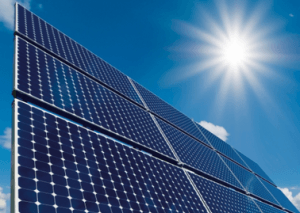Inadequate regulatory framework hampering clean energy promotion
 Mr Eric Banye, the Country Programme Co-ordinator of the SNV Netherlands Development Organisation, has blamed inadequate regulatory framework for the poor dissemination of clean and sustainable energy technologies in Ghana.
Mr Eric Banye, the Country Programme Co-ordinator of the SNV Netherlands Development Organisation, has blamed inadequate regulatory framework for the poor dissemination of clean and sustainable energy technologies in Ghana.
He named other contributory factors as inadequate financing schemes to support clean cooking, inadequate public awareness on the benefits of clean cooking technologies and uncoordinated research and development.
Clean energy or renewable energy is the energy that is collected from resources which are naturally replenished on a human timescale, such as sunlight, wind, rain, tides, waves, and geothermal heat.
It often provides energy in four important areas such as electricity generation, air and water heating/cooling, transportation, and rural (off-grid) energy services.
Mr Banye noted that the promotion of the clean energy was essential in combating challenges from climate change.
He was speaking to the Ghana News Agency in an interview at Dodowa on the sidelines of a three-day capacity building workshop for media professionals organised by SNV Netherlands Development Organisation, under “The Voice for Change Partnership Programme (V4C).”
The V4C is an evidence-based advocacy programme being implemented by the SNV Netherlands Development Organisation in partnership with the International Food and Policy Research Institute (IFPRI) and the Dutch Ministry of Foreign Affairs.
The Dutch Ministry is funding the programme for the period 2016 to 2020 as part of its worldwide effort to reinforce space for CSOs worldwide.
The programme is focused on four thematic areas – Food and Nutrition, Security, Renewable Energy and WASH.
He said the V4C Partnership on clean energy sought to promote access to clean cooking and access to off-grid electrification.
He said research had revealed that globally three billion people cooked and heated their homes using open fires and that 90 per cent of wood fuel in Ghana was obtained directly from the natural forest.
Mr Banye said in Ghana over 80 per cent of households continued to rely on solid fuels (wood and charcoal) for cooking adding that research showed that Household Air Pollution caused 13,400 deaths each year, the majority of whom were women and children.
He said the Government recognising all the challenges and therefore instituted programmes over the years to reduce the use of those inefficient Cookstoves.
Other programmes are to promote the enforcement of existing policies such as the Ghana Country Action Plan for Clean Cooking 2012, Renewable Energy Act 2011, National Energy Policy 2010, and the Bio-energy Policy for Ghana 2010.
Mr Banye called for the localisation of efforts to control climate change through the promotion of the usage of clean energy fuels and planting of more trees.
He explained that as the trees grew, they would make use of the atmospheric carbon dioxide, thereby helping to reduce global warming.
Source: GNA
